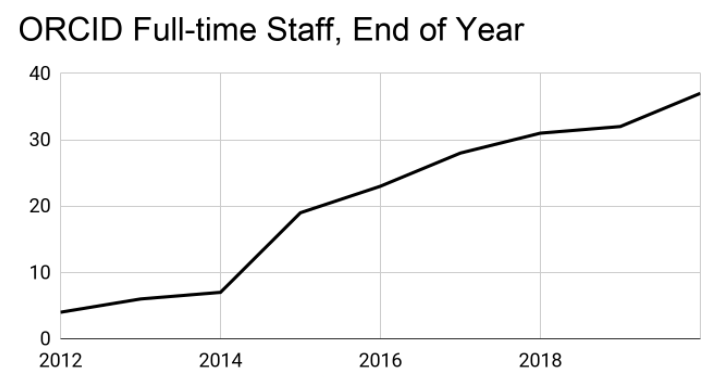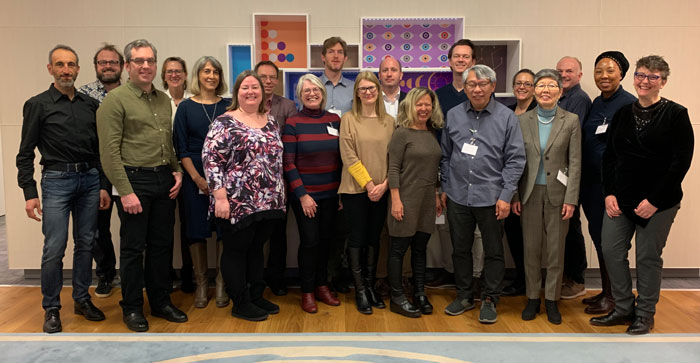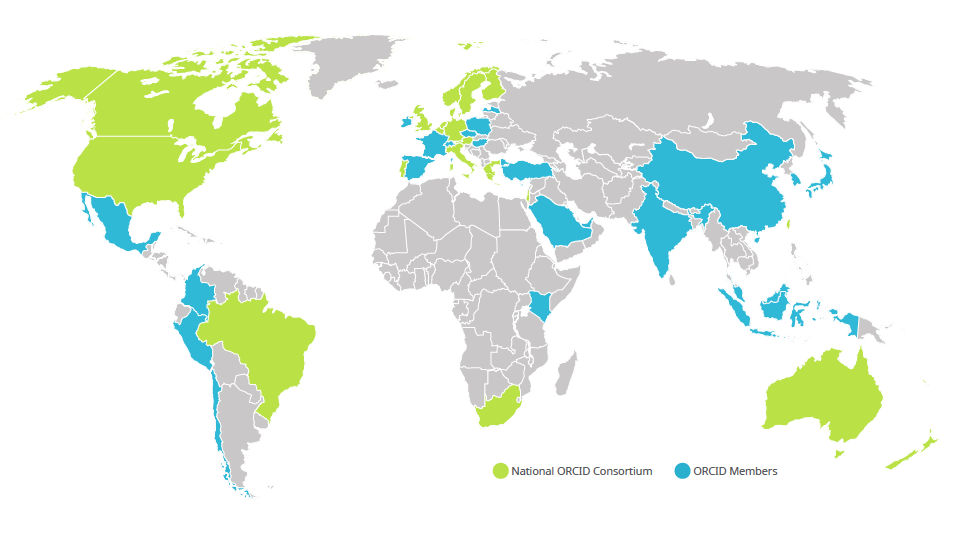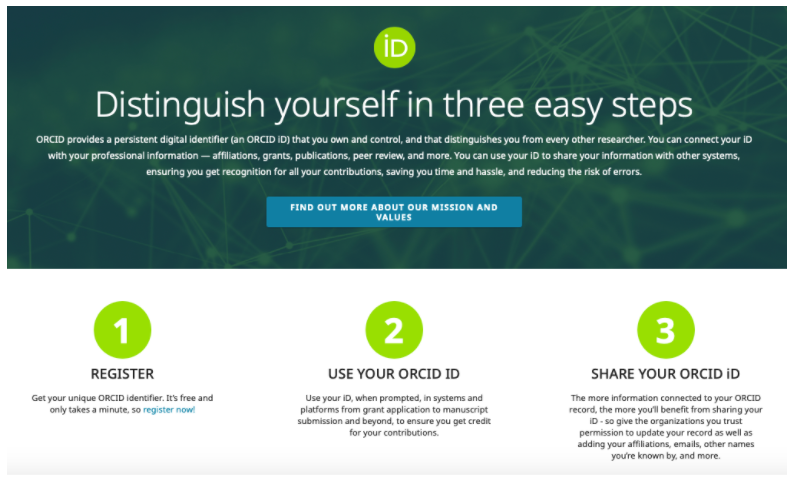[avatar user=”Laure Haak” size=”thumbnail” align=”left” /]
ORCID launched its Registry service in October, 2012. With over 1100 members and 600 systems around the world that use the ORCID API to collect ORCID iDs, ORCID has grown to become an integral part of the global research infrastructure. Persistence — both in terms of patience and prolonged existence — is critical, especially in these times of uncertainty and change.
Over the last 8 months, we have taken a deep look at our core strategies and developed a 2025 vision focused on reliability and resiliency. Our vision has three main components:
- developing the organization
- reworking how we engage with our communities, and
- maintaining and innovating on our service offering.
Organizational Development
 An often overlooked component of resilience is organizational design. As ORCID adoption has grown, we have worked hard to ensure capacity to support the needs of our members and communities. We started in 2012 focusing on our tech team. In 2013 we started building out our back office and communications capacity. In 2015, with funding from the The Leona M. and Harry B. Helmsley Charitable Trust, we grew our regional engagement capacity. We have since continued to build capacity through addition and development of staff and reworking our organizational structure. In 2018, we created a Product function, and we are currently completing a round of new hires to build out the Product and Communication teams, augment our Researcher Services team, as well as creating a dedicated Human Resources function in our Operations team. As we closed out 2019, we had 30 people in 12 countries, speaking 15 languages. We have been a fully virtual office since the start, and half of our staff have been with us for 3 or more years. In 2020, we will be focusing internally to ensure our organization has the tools it needs, the cultural foundation to act on our values, and the strategic underpinning to ensure our actions are aligned with our priorities.
An often overlooked component of resilience is organizational design. As ORCID adoption has grown, we have worked hard to ensure capacity to support the needs of our members and communities. We started in 2012 focusing on our tech team. In 2013 we started building out our back office and communications capacity. In 2015, with funding from the The Leona M. and Harry B. Helmsley Charitable Trust, we grew our regional engagement capacity. We have since continued to build capacity through addition and development of staff and reworking our organizational structure. In 2018, we created a Product function, and we are currently completing a round of new hires to build out the Product and Communication teams, augment our Researcher Services team, as well as creating a dedicated Human Resources function in our Operations team. As we closed out 2019, we had 30 people in 12 countries, speaking 15 languages. We have been a fully virtual office since the start, and half of our staff have been with us for 3 or more years. In 2020, we will be focusing internally to ensure our organization has the tools it needs, the cultural foundation to act on our values, and the strategic underpinning to ensure our actions are aligned with our priorities.
Engaging our Communities
ORCID was founded by the research community as a neutral and enabling infrastructure component. Our founding Board established our core principles, bylaws, and raised start-up funding. On its 10-year anniversary, the last of our founding members are rolling off the Board. To support this transition, the Board completed the first phase of an extensive governance review in 2019, during which it created a Board charter, created a Finance Committee, approved a Dignity at Work statement, and updated ORCID bylaws to ensure consistency among governance documents.

At the same time, ORCID staff are reworking how we engage with our communities. We will be testing out Consortium and Service Provider channel approaches that enable us to scale our activities as adoption increases. We are moving from isolated working groups to a more consolidated interest group approach. We now have over 20 national ORCID consortia, and to better support communication with and between these active communities, we will be launching a Consortia Interest Group this year.

Based on feedback from our communities, we are sunsetting our Collect and Connect badging program and soon will be launching a focused Service Provider certification program. Aligned with the creation of ORCID’s Product function, we will be launching a Product Interest Group this year, to enable better two-way flow of information about new product releases and to collect requirements. Stay tuned to the ORCID blog for more on all of these activities.
Productizing our Service
What is ORCID? We provide three essential services:
- a unique identifier
- a set of APIs to enable researchers to connect their iD with their affiliations and contributions, and
- a database to store these connections.
We have spent much of the last few years ensuring that our technology infrastructure is resilient and scales with ORCID adoption. Our technology is essential, but we also provide core engagement and communications functions to ensure best practices. With our new Product and Communications teams, we are now in the position to level up how we deliver information about what we do. We recently released an accessible ORCID home page, will follow soon with a refreshed website, and are working toward an accessible ORCID Registry by the end of 2020. Look for focused campaigns, a more robust library of media and outreach resources, not to mention improved product resources and training.

Over the last year we have implemented processes to clarify how we capture and incorporate community input and feedback into our product offering. We have several projects planned to update the user experience, drive data quality and utility, and continue to improve the value we deliver to researchers, members, and the broader research community. We continue our work with other identifier providers, including DataCite, Crossref, ISSN, and ROR, with the goal of robust openness and information transparency.
Measuring our Progress
With our Board, we have developed a 2025 vision. Based on our four core strategies, we have articulated core activities and KPIs. We are building an analytics platform this year that will enable us to develop dashboards for ongoing tracking. We are also carrying out an internal activity-based costing project to better understand service costs, very important for ORCID as we are a non-profit operating on a cost-recovery basis. We will be establishing baselines and 2025 targets this year, and sharing our progress externally in our 2020 Annual Report.
We thank all of you for being part of the ORCID journey and welcome your partnership in the years to come. Together, we are in this for the long haul!
